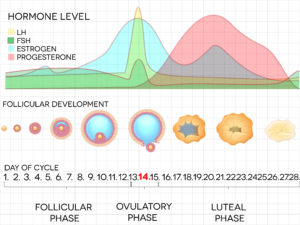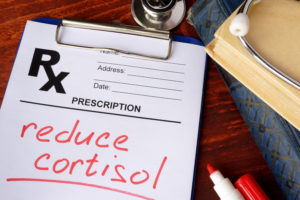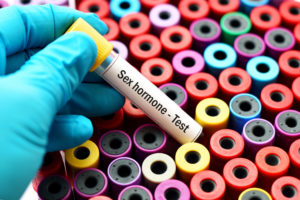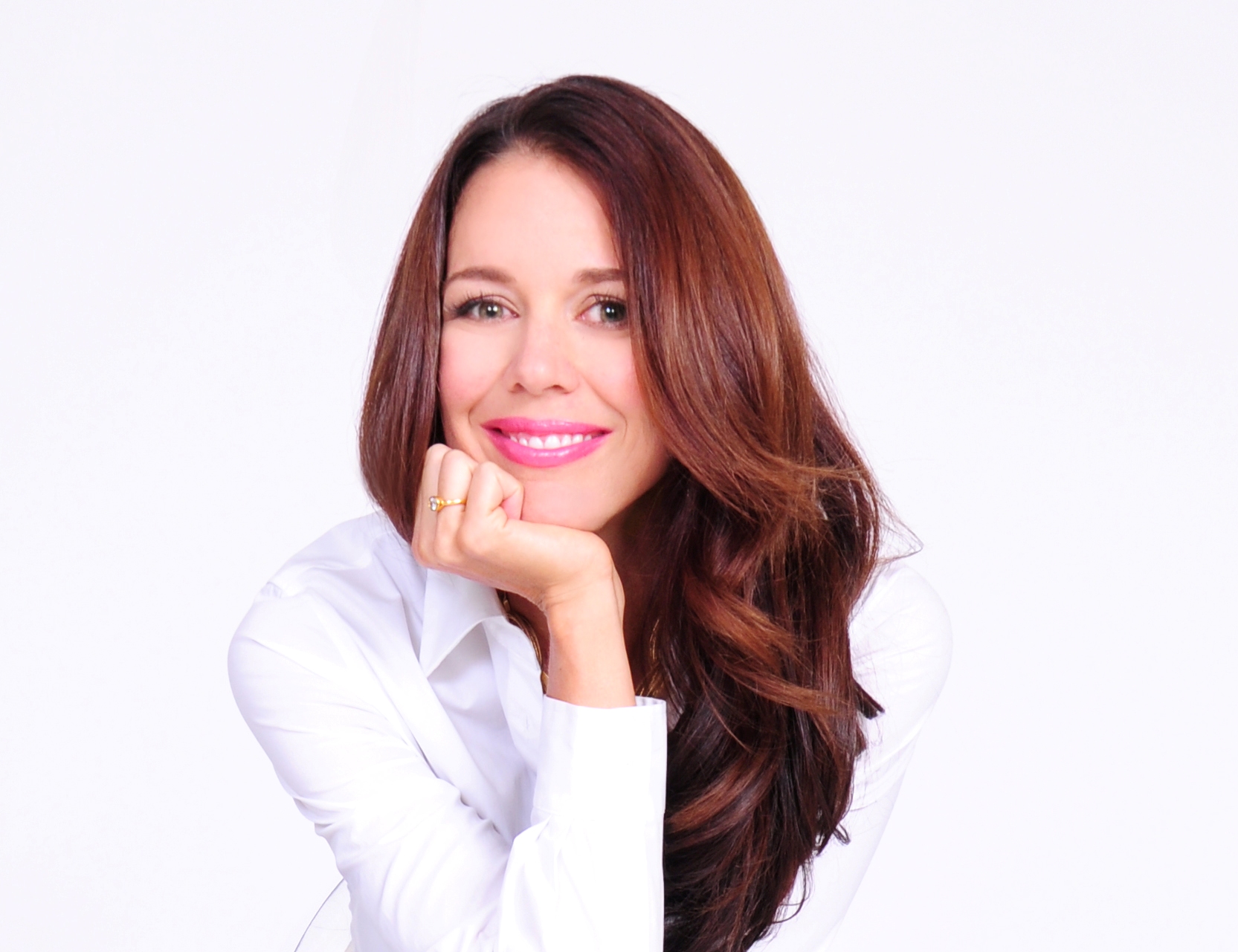Women between the ages of 30 and 50 are at risk for hormone imbalance. Personally, I’ve noticed incredibly difficult mood swings and painful menstrual cycles when going through seasons of intense stress. I hope to give insight into this delicate dilemma. You’ll learn that self-love and balance are a scientific strategy to optimize your hormones. Hormonal bliss requires cycling through each week of your cycle in a balanced way. Feminine energy is delicate and like a Goddess demands respect or she will be sure to let you know. Mother Nature keeps an accurate account of how we care for our bodies. I recently interviewed Dr. Shawn Tassone, MD, PhD, “America’s Holistic Gynecologist,” who provided me a fascinating insight into hormone imbalance. Here’s a quick review of the hormones at play in in our menstrual cycle. From a metaphysical perspective, they are thought to allow women a season of extroverted expression and introverted reflection each month. Your first day of bleeding is day one and estrogen and progesterone levels are low, we are tired and lack energy. A time for self-care, reflection and honoring what emotions arise. Embrace them as valid and thank your hormones for bringing attention to important issues that are neglected when you are out conquering the world during the 2nd and 3rd week of your cycle. As you may notice, the first few days after your period – you feel great. Estrogen is rising and you become more curious about the world around you. You’ll feel in better control of your hunger with estrogen on the rise. Week 2 continues to gradually rise in hormones so you’re likely to be more chatty, upbeat and optimistic. Week 3 begins the day after ovulation and progesterone rises and estrogen and testosterone drop for a few days, then estrogen rises again. As progesterone and estrogen plunge, our mood can often follow. Libido can rise as nerve endings “down there” are getting more blood flow. As estrogen goes lower it can also keep us from being as tired. Here are a few common hormonal imbalances and key factors you’ll need to know to keep them on track.

Estrogen:
Low: If estrogen is low you may be feeling achy, like you can’t quite get the energy in the workouts you need, have bleeding gums, or short-term memory loss. Other noticeable symptoms of low estrogen include painful sex and vaginal dryness Estrogens go low as we welcome Aunt Flo into our lives each month. Causes: Excessive exercise, eating disorders, low-functioning pituitary gland, auto-immune conditions.
High: When estrogen is high, we can gain weight, have elevated insulin levels (a fat fertilizer hormone), breast tenderness, and mood swings. Estrogen is typically higher in ratio during the 1st 1/2 of our menstrual cycle. Causes for estrogen dominance can include: obesity, poor diet with commercially raised meat, pesticides, and toxins – like bisphenol A found in plastics. Other causes include physical nerve stress, heavy metal accumulation, blood sugar imbalance and industrial chemicals.
Progesterone:
Low: Have trouble falling asleep, staying asleep, relaxing , fertility, headaches, hot flashes, or irregularity in menstrual cycles? Progesterone takes over during the 2nd 1/2 of our menstrual cycle causing us to go more inward and enter a more reflective state. Causes for progesterone dropping can include stress, toxins or xenohormones which are man-made chemicals that can create hormone imbalances.
High: When progesterone levels are high we are sleepy, hungry, insulin resistant, and cholesterol and triglycerides can go up as well.
Testosterone:
High: Findings of high testosterone might include more aggressive behavior, facial hair, acne, deepening of voice, and PCOS (polycystic ovary syndrome) and elevated insulin (a fat-fertilizer hormone).
Low: You might notice decreased libido, fatigue, and depressed mood. Causes can include low progesterone levels, oral contraceptives, and ovary failure.
Thyroid Hormones:
Low: Low levels of thyroid hormone can cause dry skin, hair loss, memory problems, constipation, depressed mood, weight gain and intolerance to cold. Some causes include auto-immune disorders (Hashimoto’s disease), stress, metabolic disturbance (high levels of insulin), environmental exposure, and nutrient deficiencies.
High: High levels of thyroid may cause anxiety, tremors, mood swings, nervousness, heart racing, weight loss, trouble sleeping, and increased bowel movements. Some causes include Graves Disease (an autoimmune disorder), over medication with thyroid replacement, and thyroid tumors.
Be your own Health Detective and run an advanced Thyroid test here.
Adrenals:
The adrenal gland is critical for hormone balance as it is the gland we depend on for estrogen production after the onset of menopause. Taking care of the adrenal gland and the demand on it for cortisol production is critical.

Low: When cortisol is low we lack energy. Cortisol is our get up and go hormone. We often reach for sugar or caffeine to fill the need, but it will only lead to more imbalance. The middle path is the preferred route with most hormones, and that is definitely true for cortisol. Increased stress in our lives can cause us to live in states of elevated levels of cortisol. If this persists, then our adrenal glands actually have a hard time continuing to make an ample supply and we will drop to unusually low levels, making us tired and lethargic.
High: Too much cortisol demand can diminish both progesterone and testosterone production. Increased stress can cause our body to make this fight or flight hormone in excess. The demand can then steal from the bodies hormone building blocks. This makes it difficult to make other hormones and balance is lost. Find out if stress and cortisol, along with other hormones are an issue with testing here.

Balance Hormones Naturally
To dial in on your hormone management there are a few key things you can do to optimize your bodies abilities naturally. If you are still having trouble after mastering these basics, consider reaching out to a professional for guidance. You can always do something to improve your hormonal health.
- Make sure your Vitamin D is optimal. You want your levels just right. 70% of Americans are deficient, but the body does not excrete excessive Vitamin D so you don’t want to overdose either. Less than 30ng/ml is considered deficient, 30-100ng/ml is normal, and there is good data to suggest Vitamin D in the range of 60-100 ng/ml is associated with less cancer risk. Levels in this range have been associated with lower blood pressure, less depression and perhaps better function of our fat fertilizing hormone called insulin.
- Fish Oil – your body needs healthy fats to create hormones. You’ll want your Omega 3:6 ratio’s to be healthy. You can check that along with other nutrients here.
- Steady diet of healthy fats, protein and fiber. Consider digestive enzymes to help digest protein if you are over 40.
- Good Sleep – sleep cannot be underestimated. When I have trouble I take Dr. Parsley’s sleep remedy. We reset our hormones during deep sleep and need 7.5 – 8 hrs each night.
- Detox – get rid of plastic water bottles, don’t heat plastic in the microwave, and avoid them all together for food handling. Get good clean cosmetics and cleaning products.
- Eat Broccoli twice a week as a good source of DIM. Diindolylmethane – helps to make a better balance between the good estrogen and the bad estrogen. Flaxseeds, pomegranates, and tempeh are a good source of phytoestrogens as well.
- Resveratrol– seems to increase testosterone levels in the blood and mimics the effects of estrogen.
- Maca Root – all maca is not created equal. In fact there are particular types of maca for different hormonal needs. Femmenessence is a product that does not introduce hormones into the body rather it works to nourish the Hypothalamic-Pituitary-Adrenal Axis, supporting the body’s own hormone production.
- Essential Oils : Clary sage helps to balance estrogen levels, lavender promotes relaxation, thyme oil improves progesterone production and sandlewood can be used to increase libido.
- Exercise helps us to metabolize stress hormones in a positive way. Exercise in a balanced way, too much, too hard and too long can contribute to hormonal imbalance as well.
- Spiritual practice: Meditate, breathe, and learn to unwind. This is an art, and most likely has the biggest impact on the tsunami of hormonal imbalance experienced in our society. Remember, we were created to thrive, not just to survive. So make it a point to find your center, feel loved and nourished from the divine energy and know the truth of your being.

Here’s my Interview with Dr. Shawn Tassone M.D., Phd, America’s Holistic Gynecologist.
Much Love,
![]()

